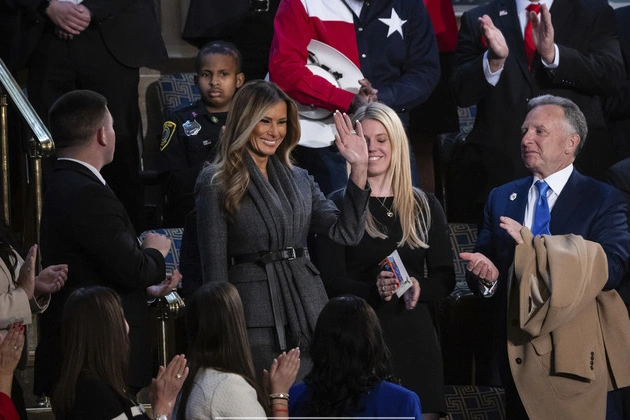
The 2018 freshman class of House Democrats arrived in Washington amid anti-Trump fervor, tasked with curbing White House actions. Now, several members, including Rep. Mikie Sherrill, former Rep. Abigail Spanberger, and ex-Interior Secretary Deb Haaland, are venturing into gubernatorial races. They argue that countering President Donald Trump’s influence demands a state-level approach.
State-Level Resistance
These Democratic women candidates assert that as governors, they can effectively push back against Trump’s policies, such as government downsizing and trade disputes. They emphasize the need for continuity in critical areas like healthcare and consumer protection, which they perceive as under threat due to Trump’s decisions.
Former Rep. Katie Porter, contemplating a run for California governor, highlights the pivotal role of state governments in safeguarding citizens against detrimental White House actions. She underscores the necessity for experienced leaders to shield communities from potential harm.
Democratic Strategy Shift
With Democrats now in the minority in Washington, the party is recalibrating its messaging post-recent GOP gains. State-level initiatives, including legal challenges to executive orders, reflect a strategic pivot to counter Trump’s agenda.
New Jersey and Virginia, hosting upcoming gubernatorial elections, offer Democrats early tests of their anti-Trump appeal. Dan Sena, former House Democrats’ campaign committee director, notes the waning support for Trump and Republicans, signaling an opportunity for Democrats to capitalize on public sentiment.
Virginia’s Vulnerability
Virginia, home to a significant federal workforce, faces potential upheaval from Trump’s federal cuts. Abigail Spanberger warns of the economic repercussions of downsizing government operations, particularly for local businesses dependent on federal activities.
Haaland’s Campaign Focus
In New Mexico, Deb Haaland’s gubernatorial bid addresses the concerns of communities affected by Trump administration policies. Haaland stresses the need for governors to counter what she perceives as harmful and chaotic decisions emanating from the White House.
Comprehensive Messaging
While anti-Trump sentiment is a unifying theme, candidates like Sherrill emphasize the importance of outlining proactive agendas beyond opposition to the current administration. They seek to reassure voters by articulating plans to reduce costs, enhance job security, and protect families from federal uncertainties.
Gender Dynamics in Governorships
The underrepresentation of women in governor roles has spurred efforts to bridge the gender gap in political leadership. The upcoming gubernatorial races present opportunities for candidates like Spanberger and Sherrill to potentially make history by becoming the first female governors in their respective states.
Massachusetts Governor Maura Healy underscores the significance of female leaders in governance, highlighting the need for increased gender diversity in executive positions.
Women Empowerment in Politics
The growing presence of women in political offices stems from mutual support networks encouraging female candidacy. This trend, exemplified by figures like Katie Porter, underscores the importance of mentorship and peer guidance in fostering women’s political careers.
Porter’s trajectory, influenced by mentors like Senator Elizabeth Warren, exemplifies the impact of supportive networks in propelling women into political spheres.
As the political landscape evolves, the rise of women in leadership positions signals a shift towards greater gender inclusivity and representation in governance.















